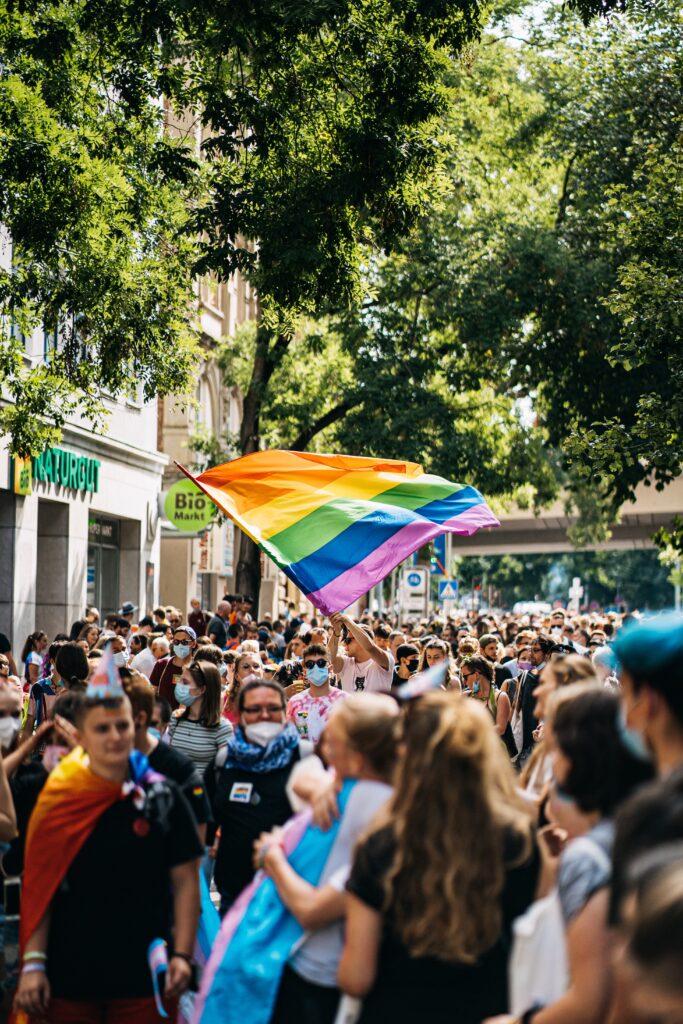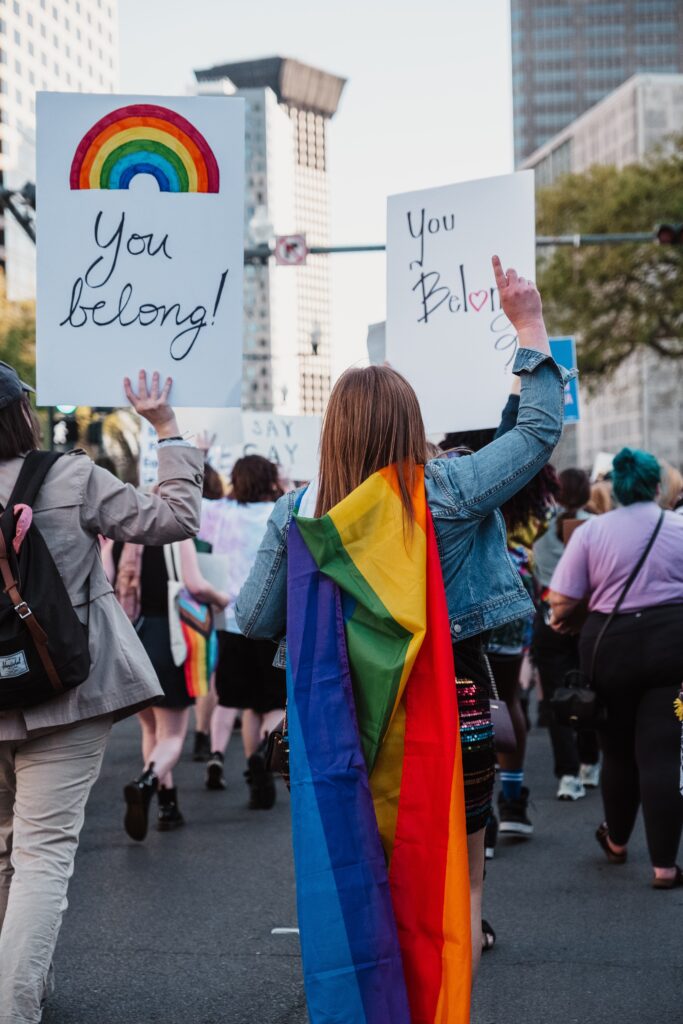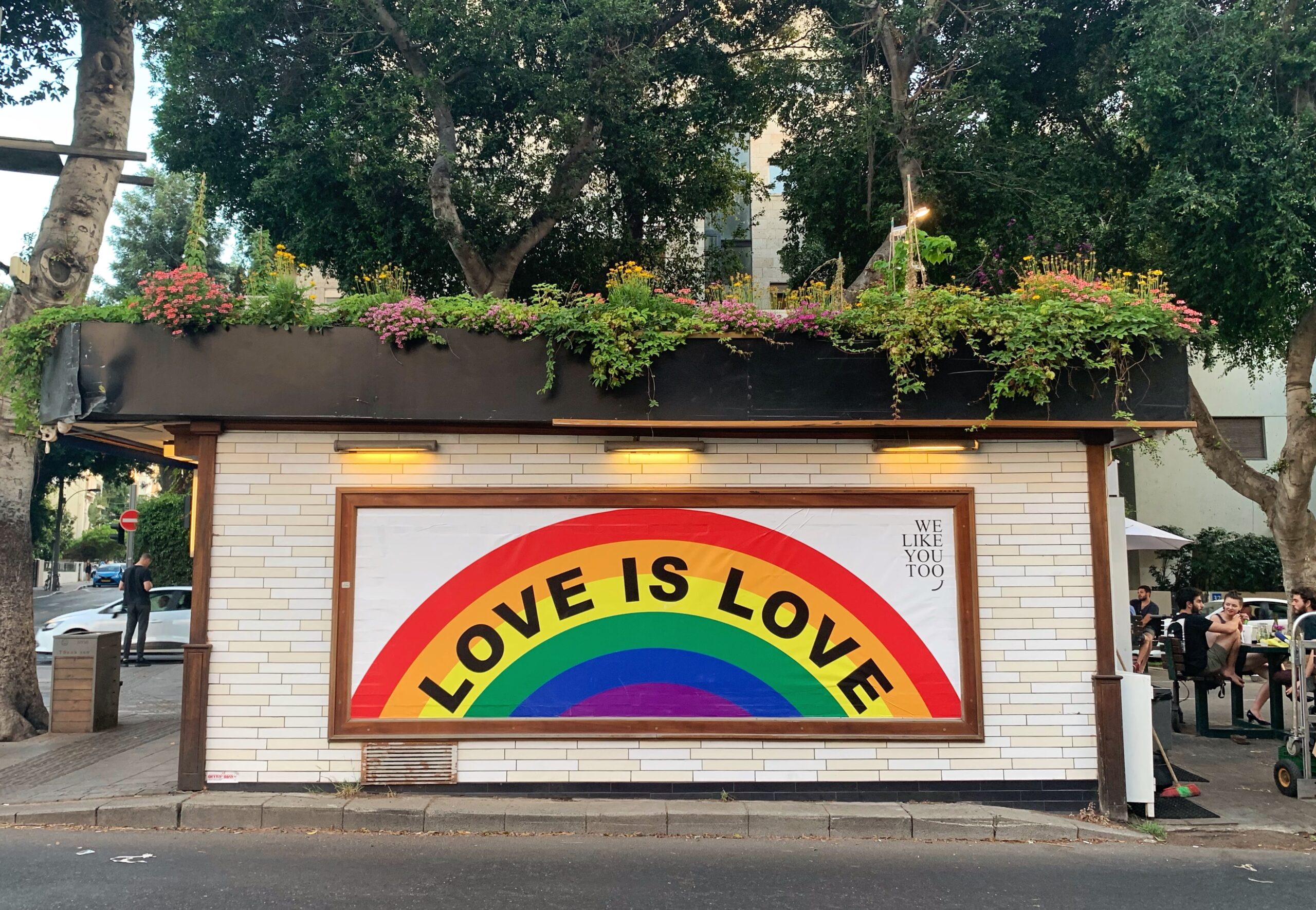June is Pride Month!
At Options, we serve people in need regardless of sexual orientation or gender identity. Sexual and domestic violence impact every demographic and every community – including LGBTQ+ people. Because the majority of the domestic violence awareness movement has focused on heterosexual relationships, members of the LGBTQ community have been largely left out of conversation. However, recent research by the Centers for Disease Control and Prevention (CDC) shows that LGBTQ+ members fall victim to domestic and sexual violence violence at equal or even higher rates compared to their heterosexual counterparts.
The National Coalition of Anti-Violence Projects (NCAVP) estimates that nearly 1 in 10 LGBTQ+ survivors of intimate partner violence have experienced sexual assault from those partners. Studies suggest that around half of transgender people and bisexual women will experience sexual violence at some point in their lifetimes.

As a community, LGBTQ+ people face higher rates of poverty, stigma, and marginalization, which means they are at greater risk for sexual assault. The LGBTQ+ community also faces higher rates of hate-motivated violence, which can often take the form of sexual assault and domestic battery.
Unfortunately, society both hypersexualizes LGBTQ+ people and stigmatizes their relationships which can lead to intimate partner violence that stems from internalized homophobia and shame.
The CDC’s National Intimate Partner and Sexual Violence Survey found for LGBTQ+ people:
- 44% of lesbians and 61% of bisexual women experience rape, physical violence, or stalking by an intimate partner.
- 26% of gay men and 37% of bisexual men experience rape, physical violence, or stalking by an intimate partner.
- 46% of bisexual women have been raped.
- 22% of bisexual women have been raped by an intimate partner.
- 40% of gay men and 47% of bisexual men have experienced sexual violence other than rape.
- Only 26% of men in same-sex relationships called the police for assistance after experiencing near-lethal violence.
- In 2012, fewer than 5% of LGBTQ survivors of intimate partner violence sought orders of protection.
Within the LGBTQ community, transgender people and bisexual women face the most alarming rates of sexual violence. Among these populations, sexual violence begins early, often during childhood.
The 2015 U.S. Transgender Survey found that 47% of transgender people are sexually assaulted at some point in their lifetime. Transgender victims are more likely to experience intimate partner violence in public, compared to those who do not identify as transgender.
Nearly half (48%) of bisexual women who are rape survivors experienced their first rape between ages 11 and 17.
The LGBTQ+ community has unique needs are when it comes to preventing sexual assault and supporting and caring for survivors of sexual violence and making sure we talk about these issues allows us to stop them from happening in the first place.
“Outing” or threatening to reveal one partner’s sexual orientation/gender identity may be used as a tool of abuse in violent relationships and may also be a barrier that reduces the likelihood of seeking help for the abuse. Prior experiences of physical, psychological, or emotional trauma (such as bullying or hate crimes), may make LGBTQ+ victims of domestic violence less likely to seek help.
Several barriers exist to addressing LGBTQ+ intimate partner violence and sexual assault. These include:
- The societal stigma that domestic violence does not occur in LGBTQ+ relationships
- Potential homophobia from staff of service providers, or from non-LGBTQ+ domestic/sexual violence victims they may work with.
- Fear that airing the problems among the LGBTQ+ population will take away from progress toward equality or fuel anti-LGBTQ+ bias.
- Domestic violence shelters are sometimes female only, and transgender individuals may not be allowed entrance due to their gender/genital/legal status.
- The dangers associated with “being outed” and risking rejection from family, friends, and society.
- Low levels of confidence in the effectiveness of the legal system for LGBTQ+ people.
At Options, we welcome everyone. If you or someone you love is an LGBTQ+ victim of abuse, call our 24-hour, toll free helpline at 800-784-4624.

If you need any additional information, have a question, or a concern, feel free to reach out to Options at our 24-hour toll-free helpline 800-794-4624. You can also reach an advocate via text by texting HOPE to 847411 or click 24-Hour Chat with Options.
Written by Anniston Weber


